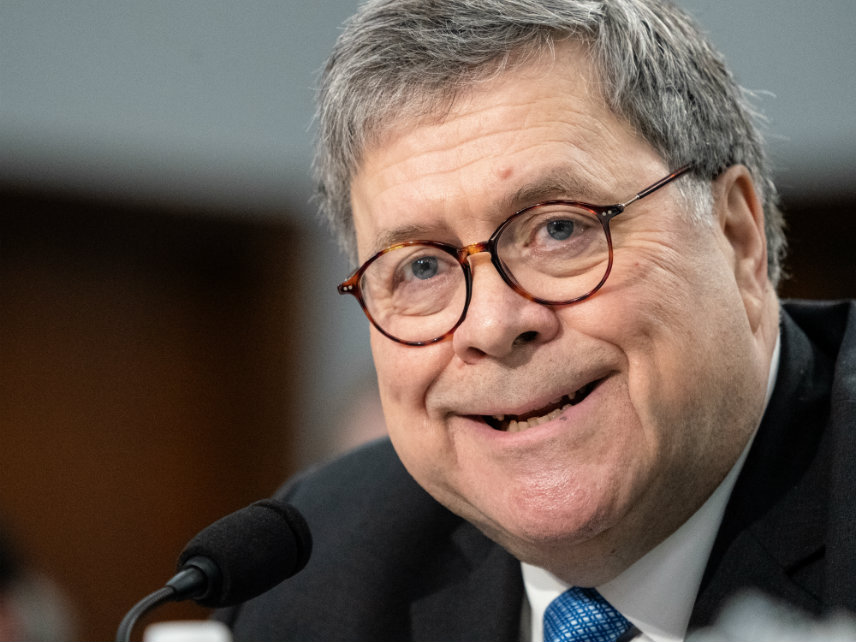Attorney General Barr Prefers Marijuana Federalism Over the Current Confusing Mess
"I think the way to go is to permit a more federal approach so states can make their own decisions," Barr told the Senate Appropriations Committee on Wednesday.

Attorney General William Barr says he would prefer marijuana to be illegal everywhere, but if states are going to keep legalizing weed, he thinks the federal government ought to get out of the way.
That's not exactly a rousing endorsement for ending the federal war on marijuana, but it's a newsworthy admission from America's top cop—an acknowledgment that states are going to continue openly defying federal pot prohibition, which puts the Department of Justice in an increasingly untenable situation.
"The situation that I think is intolerable, and which I'm opposed to, is the current situation we're in," Barr told the Senate Appropriations Committee on Wednesday morning. He was responding to a question from Sen. Lisa Murkowski (R–Alaska) about the recently reintroduced Strengthening the Tenth Amendment Through Entrusting States (STATES) Act, which would amend the federal Controlled Substances Act to prevent federal law enforcement from taking action against people and businesses in states that have legalized marijuana. Though Barr said Justice Department officials were still reviewing the bill, he told the committee that allowing states to set pot policy would be an improvement over the status quo.
"Personally, I would still favor one uniform federal rule against marijuana but, if there is not sufficient consensus to obtain that, then I think the way to go is to permit a more federal approach so states can make their own decisions within the framework of the federal law and so we're not just ignoring the enforcement of federal law," he said.
Barr's comments seem to indicate that he's taking a more realistic approach to the question of state-legal weed than did his predecessor: committed drug warrior Jeff Sessions, who had threatened a crackdown on marijuana businesses in states where weed is legal after rescinding an Obama-era memo that advised federal prosecutors to leave state-legal marijuana businesses alone. During his confirmation hearings, Barr said he would not support such a crackdown on state-legal marijuana businesses, though he stopped short of promising to re-implement the Obama-era policy.
Barr's comments on Wednesday are also more in line with President Donald Trump's expressed views on the topic. Trump said last year he would "probably" support an earlier version of the STATES Act if it reached his desk—and Barr seems to be echoing that same supportive-but-not-endorsing sentiment.
And that's just fine! If the best the federal government can muster is a promise to stop interfering in state-level marijuana policies, it would be a marked improvement on the past four decades of policy. The biggest winners would be the more than 200,000 Americans who are now working full-time in state-legal marijuana businesses in the 33 states with legal medical marijuana and 10 states where recreational weed is legal. The STATES Act would allow those businesses to access banking systems without running afoul of federal money laundering laws.
The bottom line is that Barr is absolutely correct that current federal marijuana enforcement policy is a complete mess. He's also right to say, as he did later in the hearing on Wednesday, that Congress should fix it—rather than having each new attorney general add to the uncertainty.


Show Comments (68)